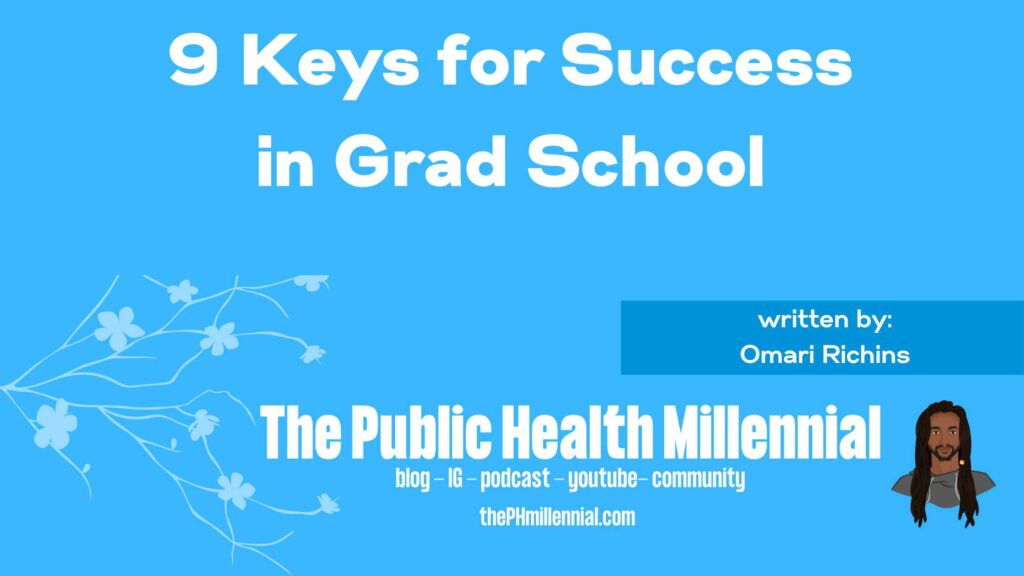Simply put a fellowship is a post-graduate or post-doctoral job that allows you the flexibility to work on various areas of an organization where there is usually a closely guided mentorship and leadership building component included in the overall experience.
“Fellowship programs can be designed to support a range of activities including graduate study in a specific field, research to advance work on a particular issue, developing a new community-based organization or initiative, training and reflection to support the fellow’s growth, opportunities to further explore a particular field of work.“
According to UC Berkley
In this post I will go over:
- Why you should get a fellowship
- The application and interview process
- How long are fellowships
- Where to apply
- Cons
Support The Public Health Millennial on BuyMeACoffee
*There are also fellowships that are catered to MDs and DOs, but that won’t be spoken about in this post.
There are several different types of fellowships – this post will be focused on the health administration and public health side of fellowships. These will be Health Administration fellowships, Community Health Fellowships, and Research Fellowships.
These health administration and public health fellowships usually want persons with degree credentials of:
- Master of Science
- Master of Public Health
- Master of Health Administration
- Master of Business Administration
- Master’s in Health Services Administration
- Master of Science in Nursing
- And other Graduate Degrees
Why You Should Get a Fellowship?
Fellowships are an amazing opportunity to kick start your career post-graduate school.
One of the best advantages of a fellowship is that your job duties either span various different projects or are on a rotation basis. This is so beneficial since after post-graduate school most people know they want to work in this field but are not sure which job they think they will fit with their skills and future aspirations best.
Different fellowships are structured differently so be sure to research the program that you are applying to. You’ll need to know if the various duties align with what you would want to further in your career.
Fellowships usually strategically leverage you to become a future leader in your field by gaining amazing operational and strategic experience. This along with being part of a leadership and mentorship structured program can really fast track you path to success in your field.
Mentorship is a key part of a fellowship – and this is a great reason to try to become a fellow.
Mentorship will be built into your fellowship experience where you will work directly with a supervisor who is in a mid-to-senior level position in the organization. This mentorship will help you to focus on developing the skills that you would like to improve the most throughout your fellowship program. Additionally, you will usually develop an evaluation plan with your mentor to track how well you are achieving the goals that were co-created at the beginning of your fellowhsip.
Another benefit of getting a fellowship is the community of fellows that you will become a part of when you get that fellowship.
Some fellowship programs hire more than one individual per cycle. This will allow you to develop a relationship with an individual in the same or similar stage of their career. This will be great to bounce ideas off of, and just to understand more about the projects being done at your organization – as there is a high probability you will be working on separate projects. Depending on the fellowship, there might also be a larger network of older fellows who you can connect with and can provide very useful information, insights and networking connections.
One last attractive factor of a fellowship is that you will be assured a job before graduation. Being able to know that you have secured a fellowship (a job), can really relieve stress and anxiety during your last couple months of graduate school.
The Application and Interview Process
All fellowships will have different application processes, but from my research while searching for fellowships they tend to follow a very similar application and interviewing process.
The application process usually consists of having to submit:
- A resume/CV
- Official/Unofficial Transcripts
- Cover Letter
- Personal Statement
- Recommendations (letter of recommendation or reference)
- Supplemental questions/essays/information
*For Health Administration Fellowships you will need to fill out the NAFCAS which is the centralized application portal for Health Administration Fellowships.
After you submit your application and the application process has ended which is typically in November-January. Depending on the fellowship, you will receive a call/email from current fellows/staff telling you either your application has been received or inviting you forward to a phone interview.
Typical fellowships will have at least a two-tier interview process. Meaning you’ll get interviewed first by either the staff-mentor or a current fellow. Then if you make it to the next round, you will be interviewed by the CEO or Upper-Level management – this may be an onsite visit or via zoom.
How long are fellowships?
Fellowships occur after you have completed graduate school. They usually last between 12-24months.This time period is perfect for you to completely be divulged into this field and the organization to better understand what can be shaped for your future.
After your fellowship you will be tasked with two choices:
- Continue working for the organization you had your fellowship
- Finding a job at a new organization
If you decide to continue to work at the organization that hired you as a fellow, you will probably be able to leverage your fellowship experience to step into a mid-level position (on certain occasions) in the organization.
You will definitely need to have showed the value you bring during your fellowship in order to be able to justify you getting a mid-level position, but it is possible.
If you take the next route and decide to embark to continue your career with another organization – this can be a very exciting time as there are in theory limitless different opportunities not tied down to the specific task required for a fellowship.
Where to Apply?
If you are looking for fellowships, they are many around focused in different fields and focuses. Many organizations offer fellowship experience, so you have to be sure to do your research before you apply to any specific one.
The first place I would start is by getting a Google Job Alert set to your email. This can be done by using a key word searches like “public health fellowship” or “health administration fellowship” and adding these to your Google Job Alert search terms so it automatically sends new fellowships.
You can even choose which specific states, or cities you want it to search for – I would suggest you leave it open to as many places as possibly in the case of an amazing
If you’re interested in a fellowship with a specific organization, it may be best you get onto their website and see when those fellowships are and what the application process is like.
Organizations like the Centers for Disease Control (CDC), FuseCorp, U.S. Public Interest Research Group, Food and Drug Administration (FDA), National Resources Defense Council are ones that may be of interest and keeping up to date on their hiring page may be very beneficial.
Some fellowships, for example Health Administration Fellowships, have a standardized portal that all applicants must use to apply to various organizations. This portal is called NAFCAS and allows you to upload all your relevant documentation and fill out supplemental information that would be needed for different programs.
You should lastly, be on the lookout for webinars or informational sessions that many of these fellowship programs host. You may have to get on a mailing list to be notified to register because some programs have limited spaces. Others will have several webinars that can be attended.
Webinars or informational sessions give you the opportunity to talk to current fellows and better understand what the experience will require – so if you can, definitely attend.
Cons
No matter what field you are studying, a fellowship can offer you an accelerated step into your industry while letting you experience many different facets that an organization has to offer. This may help you to better understand what you are passionate about as you are able to work on several different projects.
The biggest con of applying for a fellowship would have to be that you usually have to apply during the fall semester before you graduate. Thus, this may be a hard time for you to get all your materials together while still staying on top of your coursework. Additionally, coming down to the end of the semester makes it harder to get references as professors tend to be busier with finals.
You can definitely overcome this barrier by prepping to apply as soon as the applications open which will give you enough time to complete all the required components in a manageable time. And you have to ensure that you have secured a commitment from you letter of recommendation writers or inform your references that they may be getting a call.

Conclusions
Fellowships can be a great way to start your post-graduate career on the upper foot with a job with guided mentorship to best support your growth. This can offer many new paths for you to make an immediate impact in your field of study.
All in all, a job can be just as rewarding and fulfilling as a fellowship.
So you should really sit down and think about what you want for yourself after graduating. A fellowship may be something that you are interested in, however there are many other just as awesome jobs you can acquire after graduate school.
Are you planning to apply to any fellowships?



